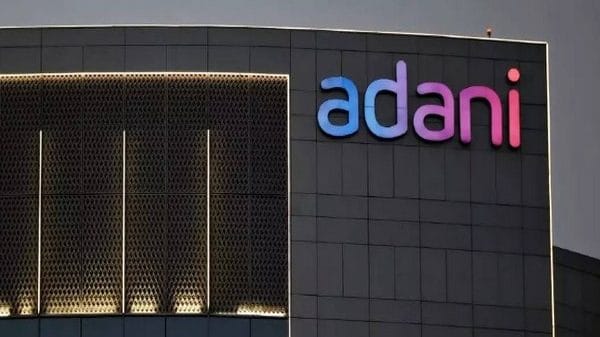Thank you dear subscribers, we are overwhelmed with your response.
Your Turn is a unique section from ThePrint featuring points of view from its subscribers. If you are a subscriber, have a point of view, please send it to us. If not, do subscribe here: https://theprint.in/
The functioning of both the houses of the Indian parliament during the winter session was often disrupted with the opposition lawmakers disrupting proceedings seeking a discussion on allegations against the Adani Group. U.S. authorities have accused Gautam Adani, his nephew Sagar Adani and managing director of Adani Green, Vneet S. Jaain, of being part of a scheme to pay bribes of $265 million to secure Indian solar power supply contracts, and misleading U.S. investors during fund raises there.
Many of India’s opposition parties accuse Prime Minister Narendra Modi and his Bhartiya Janata Party (BJP) of favoring Adani and blocking investigations against him in India, accusations both have denied.
Earlier in 2023, Hindenburg Research had alleged that the Adani Group was “engaged in a stock manipulation and accounting fraud”. The Adani Group has interests in varied sectors such as ports and logistics, power generation, agribusiness, real estate, defence, solar energy, financial services, natural resources and media.
- The research firm alleges that the Adani group has engaged in ₹17.8 trillion (US$ 218 billion) brazen stock manipulation and accounting fraud schemes over the course of decades.
- The Hindenburg’s report says that the Adani family controlled offshore shell entities and indulged in money laundering and taxpayer theft, while syphoning off money from the group’s listed companies.
Jugeshinder Singh, Chief Financial Officer of the Adani Group, had called the report a “malicious combination of selective misinformation and stale, baseless and discredited allegations”.
The contradiction in Indian economic principles
Socialism in India is a political movement founded early in the 20th century, as a part of the broader movement to gain Indian Independence from colonial rule. The movement grew quickly in popularity as it espoused the causes of India’s farmers and laborers against the zamindars, the princely class and the landed gentry. After independence and until the early 1990s, socialism shaped many economic and social policies of the Indian government, and mostly followed the principles of dirigisme. Post 1991, India moved towards a more market based economy, though, India is officially declared a socialist state as per the constitution; a contradiction in itself
The political leaders of newly independent India embraced widespread state intervention across much of the economy, with large State owned enterprises (SOE). By the 1980s, India had become a notorious exemplar of the perils of state capitalism, from corruption to inefficiency. Overall, the political and economic coherence of Indian state capitalism as a system was a failure, illustrating the difficulties of governing state capitalism in a fractious federal democracy.
Big economies are created through deregulated business practices and not through socialism.
The USA
A popular Wild West movie that highlights political influence in railroad building is “Once Upon a Time in the West” (1968), directed by Sergio Leone. The film portrays the construction of a transcontinental railroad and the corruption, greed, and political maneuvering surrounding it. Key themes include the exploitation of landowners, manipulation by wealthy businessmen, and the moral complexities of progress. One of the central figures is a ruthless railroad tycoon who uses hired guns and underhand methods to secure land critical for the railroad’s expansion.
This movie not only captures the rugged aesthetic of the Wild West but also delves into the power dynamics and moral compromises involved in industrial progress during the evolution of the American democracy and economy as also the relationships between business and government – which continues blatantly and openly to this day. The USA is the largest economy in the world today by a large margin.
China
Many of us marvel at the progress of the Chinese economy and the lagging Indian economy. There was a lot of out of the box thinking, cutting corners and unholy (in a democracy) nexus of entrepreneurs and local governments involved during the Chinese economic boom.
In her book “The new China play book beyond socialism and capitalism” author and economist Jin Keyu explains, there is a Chinese term guanxi, which means “relationships”. Local governments in the provinces provided all assistance to private enterprises. Support provided by local government officials to private firms was not altruistic. There were private benefits, which often took the form of gray income or bribes. The former might include high-end trips, accommodations at resort hotels, or defraying the overseas tuition of an official’s child. And of course, there were also outright cash transfers or equity stakes in private businesses given to family members of powerful state officials. Even though there was no shortage of corruption cases among state enterprises, striking a deal was still easier with private companies. It was also common practice in China, to help the wives of entrepreneurs to find jobs and to place their children into the best schools.
China is the second largest economy in the world today by a large margin.
Wealth can’t be distributed unless it is created. Creation of wealth is not a socialist activity.
Col KL Viswanathan
(The author is an Indian Army veteran and a contemporary affairs commentator. The views are personal. He can be reached at kl.viswanathan@gmail.com )
These pieces are being published as they have been received – they have not been edited/fact-checked by ThePrint.


